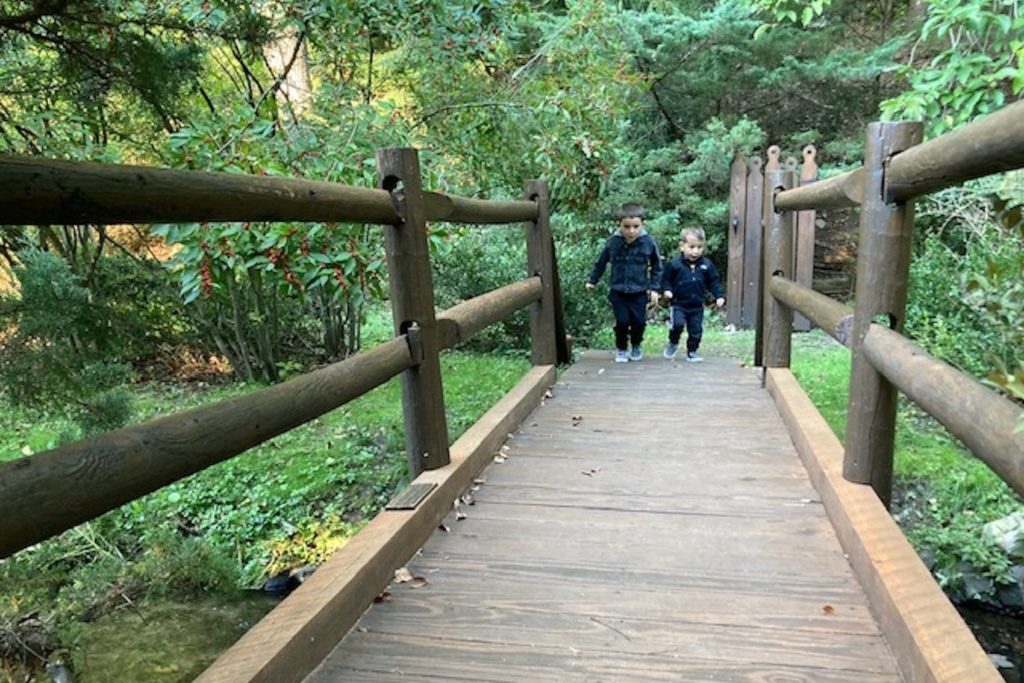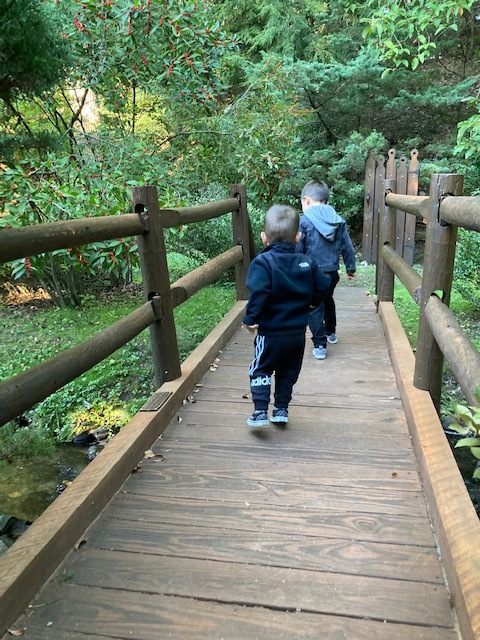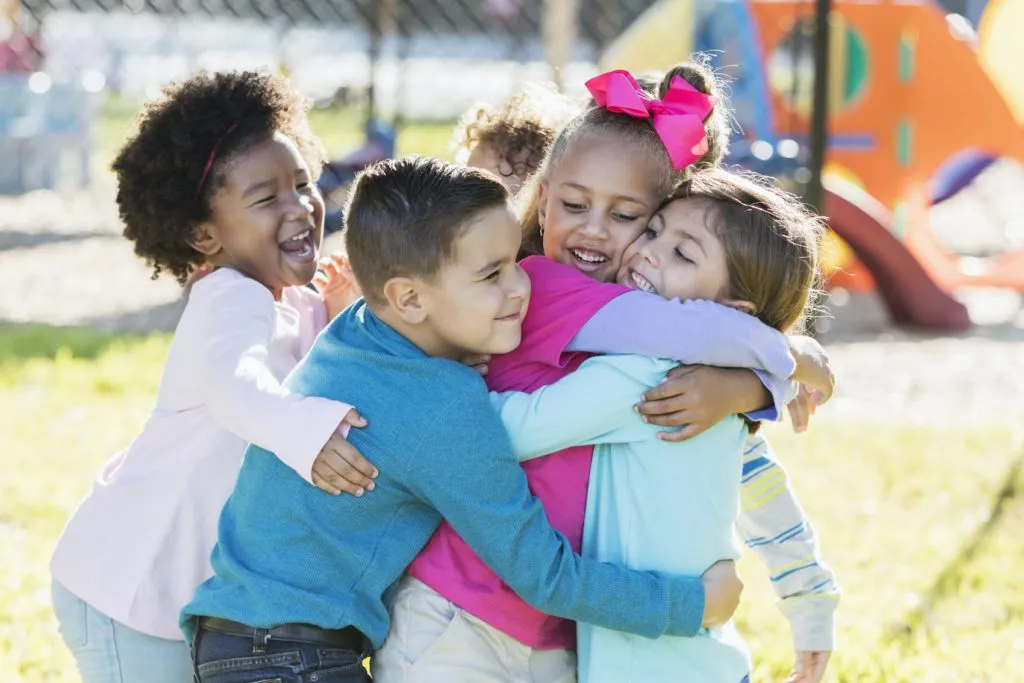Why I Don’t Solve Social Problems for Children Anymore


Overheard on the Playground
Two preschool children skip over a footbridge on the playground. A third child joins but begins skipping in the opposite direction, causing a traffic jam.
Immediately, a well-intending teacher steps in and redirects the child to skip in the same direction as the others. The child accepts this redirection and 1, 2, 3…the traffic jam dilemma is resolved without any input from the children. The teacher smiles, satisfied with the outcome, and steps away to observe the children from a distance.
As I, a fellow teacher, look on, I can’t help but wonder what would have happened if the adult paused and observed how the children themselves handled the situation. How could pausing and remaining out of the action actually be a support strategy? Or, if the teacher did need to offer guidance, what could she have said to the children?
Maybe the children would have decided to skip in both directions, switching as a group, or alternated whose turn it was to skip in any direction they would like. They may even, dare I say it, have a disagreement on what to do.
Sometimes, observing our colleagues can inspire us to look inward and begin our own professional reflection. I thought to myself, “How can I enhance my own practice to better empower children to solve their own social problems?”
What Is a Teacher to Do?
Disagreements are part of life. Acknowledging that concept and being prepared to handle conflicts in positive and healthy ways is a lifelong skill that is very much rooted in children’s early social and emotional experiences and learning.
Teachers can empower children to become confident, independent thinkers by providing them with the time and space to work through problems that arise, while also intentionally modeling and teaching positive, pro-social behaviors throughout the school day.
Teachers can turn their best intentions into intentional teaching by
- building positive relationships with children and their families,
- cultivating problem-solving and conflict resolution skills,
- creating a caring community of learners,
- guiding children to make healthy choices, and
- supporting children to manage their feelings and behaviors.
With the guidance included in solutions such as Al’s Pals and The Creative Curriculum's foundation volume related to this topic (Guided Edition, Volume 3: Social–Emotional, Physical, & Cognitive Development), the process of supporting social and emotional skills can become a meaningful and organic aspect of daily life for teachers, children, and their families.
Cultivating Independence Takes Practice
 The scenario presented in this blog is a common kind of scene on playgrounds and in early childhood classrooms everywhere (and in hallways and at snack tables and pretty much anywhere there are groups of children). Indeed, it should be a common scene, since disagreements are a normal part of life! There will be many times in children’s lives when they encounter other people who are—either literally or figuratively—headed in the opposite direction.
The scenario presented in this blog is a common kind of scene on playgrounds and in early childhood classrooms everywhere (and in hallways and at snack tables and pretty much anywhere there are groups of children). Indeed, it should be a common scene, since disagreements are a normal part of life! There will be many times in children’s lives when they encounter other people who are—either literally or figuratively—headed in the opposite direction.
Children need lots of opportunities to be involved in a variety of social situations that require them to practice the problem-solving skills modeled by the caring adults around them. Experiencing a variety of social situations is one of the very best ways for children to develop the self-regulation needed to manage their emotions and responses in healthy ways.
Now, of course, there are times when safety can be a concern and stepping in and supporting children to work through a problem is necessary. However, talking through a problem and its possible solutions with children is very different than simply solving the problem for children.
Sometimes, pausing and taking a deep breath can be just what we teachers need to remind ourselves to respect the sometimes uncomfortable process of allowing children to practice and strengthen the social and emotional skills that we strive to foster each day.

Everyday Decisions: Empowering Children’s Decision Making
Discover ways to increase children’s sense of belonging by providing developmentally appropriate opportunities for children to make decisions within the classroom community in this webinar.